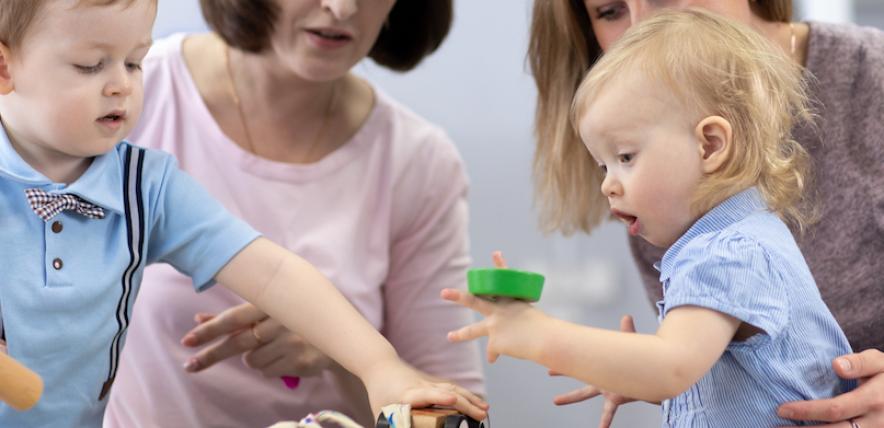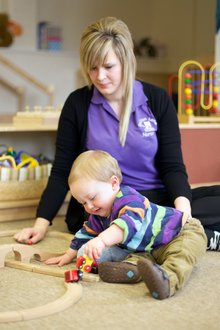By Dorothy Lepowska
The decision to enrol your child into an early years setting can be a difficult one for parents or carers. Financial constraints on budgets often mean that both adults within the home need to work, and without the option of working from home or handing them over to willing grandparents or other family members, it could mean registering your child with a childminder or nursery.
Building a good relationship with your child’s early years setting will help to reassure you about the decision you have taken and that your precious little one is receiving the best possible care and early education.
Here, I’ve compiled some tips for ensuring these relationships are strong, successful and so that jointly with the setting your child receives the care and support they need, making their experience happy and positive.
Fill out your forms
Your chosen setting will require you to fill in various forms and documents, as well as providing you with important information about safeguarding and their operational policies generally.
Some of these forms will ask for information about your child’s medical and family history, contact details and so on. Check all contact details are correct, as they will need these in the event of an emergency.
If this information changes, remember to let them know. Make sure you also read all the information the setting gives you as this will outline their policies, rules and the expectations they have of you, as a parent or carer.
Keep in touch with your child's key person
In most settings, your child will have a “key person” – this is the person who is responsible for overseeing your child’s development and is likely to spend the most time with them.
Get to know the staff members, including senior staff, and establish a good relationship with them. Ask them every day how your child has been and share with them any information about things happening at home that might be relevant. For example, if your child has been feeling unsettled, it will help them to know so they can tailor their care and approach. Most settings will provide you with information about your child’s day, including what and how much they ate, at the end of every session.
Send in supplies
Makes sure you send your child in with everything they need. This might include bottles/snacks, nappies, a favourite toy and a change of clothes. Keeping a bag permanently packed with these items will help you to remember that it’s something you need to take in every day.
Always be on time
Ensure you bring in, and pick up, your child on time. Some childminders and nurseries are flexible about drop-offs, but they will expect you to pick up your child at the designated time. Of course, people get held up in traffic and other unpredictable events, but if you are delayed then let the setting know as soon as possible so they can plan ahead and ensure they have staff to cover until you can get there. Be aware, however, that they might implement a fee if you’re late.
Stay away if sick
Abide by their rules on sickness. This is really important. All early years settings will have a policy on infectious diseases such as chickenpox and norovirus, and will expect you not to put other children, or staff, at risk. Familiarise yourself on what you need to do in these situations and don’t send your child back too soon. At the same time, you can expect the nursery to inform you if another child has been sent home with an infectious illness so you can take the necessary measures.
Get involved
Get involved with the life of the setting. Many organise events, for example, for cultural or religious festivals, or key dates throughout the year. Meeting other parents, and the staff, in a less formal and more social situation can help to build friendships and relationships and will give you a feel for what it’s like at the setting for your child.
Pay up promptly
Pay your fees on time. Childminders and nursery staff do their jobs because they love children and want to see them grow and thrive. But they are also businesses that rely on your fees to ensure enough staff are employed and that your children enjoy and benefit from the best possible resources and environment.
A good quality relationship with your child’s early years setting will help your child’s happiness and ability to thrive.
Be honest, engaged and supportive and you can be assured that you will receive the same in return.
At the same time, don’t be afraid to mention any concerns or problems or to seek explanations. If your child is unsettled or unhappy, ask if anything has happened.
Equally, express your appreciation if a member of staff has gone the extra mile for your child.
Early years professionals are traditionally not that well paid for the responsible and important role they have in helping to raise our children, and a kind word can really make a difference.
Dorothy Lepkowska, is co-author of Meet the Parents — How Schools Can Work Effectively with Parents to Support Children’s Learning.







